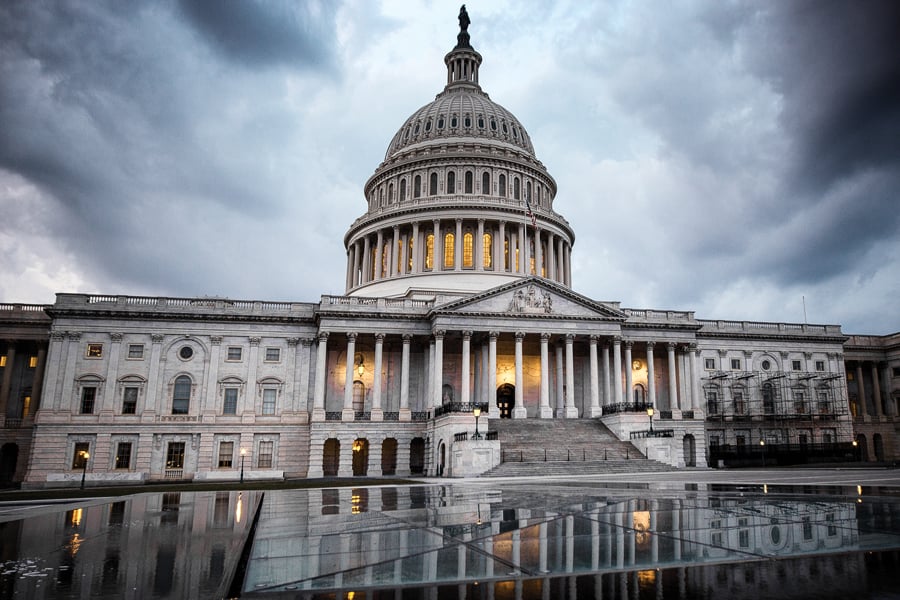

Investment advisers are worried that a pending congressional proposal to impose a new tax on billionaires could expand to other wealth levels.
This week, congressional Democrats are negotiating the details of a massive piece of legislation, the Build Back Better Act, that contains an array of social and climate spending that incorporates the Biden administration’s economic agenda.
The initial $3.5 trillion measure is reportedly being whittled down to about $2 trillion. Democratic lawmakers also are trying to reach an agreement on how to pay for the spending.
The process has been complicated by the opposition of Sen. Kyrsten Sinema, D-Ariz., to raising corporate, individual and capital gains taxes — policies that were included in a House version of the bill.
One of the emerging revenue ideas is a tax on billionaires’ income. Senate Finance Committee Chairman Ron Wyden, D-Ore., is expected to introduce a proposal this week that would tax the unrealized capital gains of the extremely wealthy, according to a report from Bloomberg News.
The tax would be levied on people with $1 billion in assets or $100 million in earnings over three consecutive years, according to a summary from Wyden’s office. The tax, which is expected to affect about 700 taxpayers, would be assessed annually on stocks, bond, real estate and art regardless of whether the assets are sold.
Some investment advisers are concerned that the initial small group of taxpayers targeted by the billionaires’ tax could become a larger pool.
“What happens next with this tax?” said Curtis Bailey, founder of Quiet Wealth Management. “Where do they go from there? How do they bring it down?”
President Biden and congressional Democrats have emphasized they want to ensure the rich pay their fair share of taxes. But Jim Crider, owner of Intentional Living FP, said the tax eventually could extend well beyond that group.
“It’s a slippery slope,” Crider said. “They’re creating a new means of collecting taxes on billionaires. Once they have a road map, who’s to say they won’t roll it out to millionaires and then to the millionaire next door and then to everybody?”
Democrats are estimating the tax could raise $200 billion to $250 billion over 10 years.
Whether the proposal would produce new revenue, however, depends on whether the billionaires sell their assets while they’re alive, said Larry Harris, director of tax services at Parsec Financial. If they do, they would have to pay capital gains taxes.
Taxing billionaires on those assets before they’re sold would get the money into government coffers more quickly.
“Over the long haul, it makes me wonder what new revenue you’re generating,” Harris said. “You’re probably accelerating revenue.”
But if the ultra-wealthy hold on to their assets throughout their life, there may be a tax windfall.
“If the taxpayer has massive amounts of gains that are never actually realized and recognized but end up being addressed in estate and gift taxation, then such a new tax scheme would represent new revenue assuming estate and gift tax rules do not change,” Harris added.
Trishul Patel, founder of Investing Forever Advisory, supports a billionaires’ tax because he said the uber rich tend to hang on to their assets indefinitely, exacerbating the wealth gap.
“Once you reach a tipping point in wealth, it’s like a recurring fusion reaction,” Patel said. “There’s nothing to stop it.” If there’s no billionaires tax, “it means wealth inequality will get worse and worse as time goes on.”
If the levy is enacted, billionaires likely will find a way to get around it, Bailey said. For instance, they might move their assets into an irrevocable trust.
“It creates off-balance-sheet activity, which, I think, is not intended by this law,” Bailey said.
It’s not clear the billionaires tax will make it into the Build Back Better bill. Some Democrats have expressed concern that it’s an untested way to collect taxes. Raising rates can occur within the existing tax system.
All Senate Democrats must support the Build Back Better bill because it is being advanced in a parliamentary process that sidesteps a Republican filibuster in the evenly divided chamber. In the House, Democrats only have a three-seat majority. It’s almost certain no Republican will support the legislation.

Relationships are key to our business but advisors are often slow to engage in specific activities designed to foster them.

Whichever path you go down, act now while you're still in control.

Pro-bitcoin professionals, however, say the cryptocurrency has ushered in change.

“LPL has evolved significantly over the last decade and still wants to scale up,” says one industry executive.

Survey findings from the Nationwide Retirement Institute offers pearls of planning wisdom from 60- to 65-year-olds, as well as insights into concerns.
Streamline your outreach with Aidentified's AI-driven solutions
This season’s market volatility: Positioning for rate relief, income growth and the AI rebound
